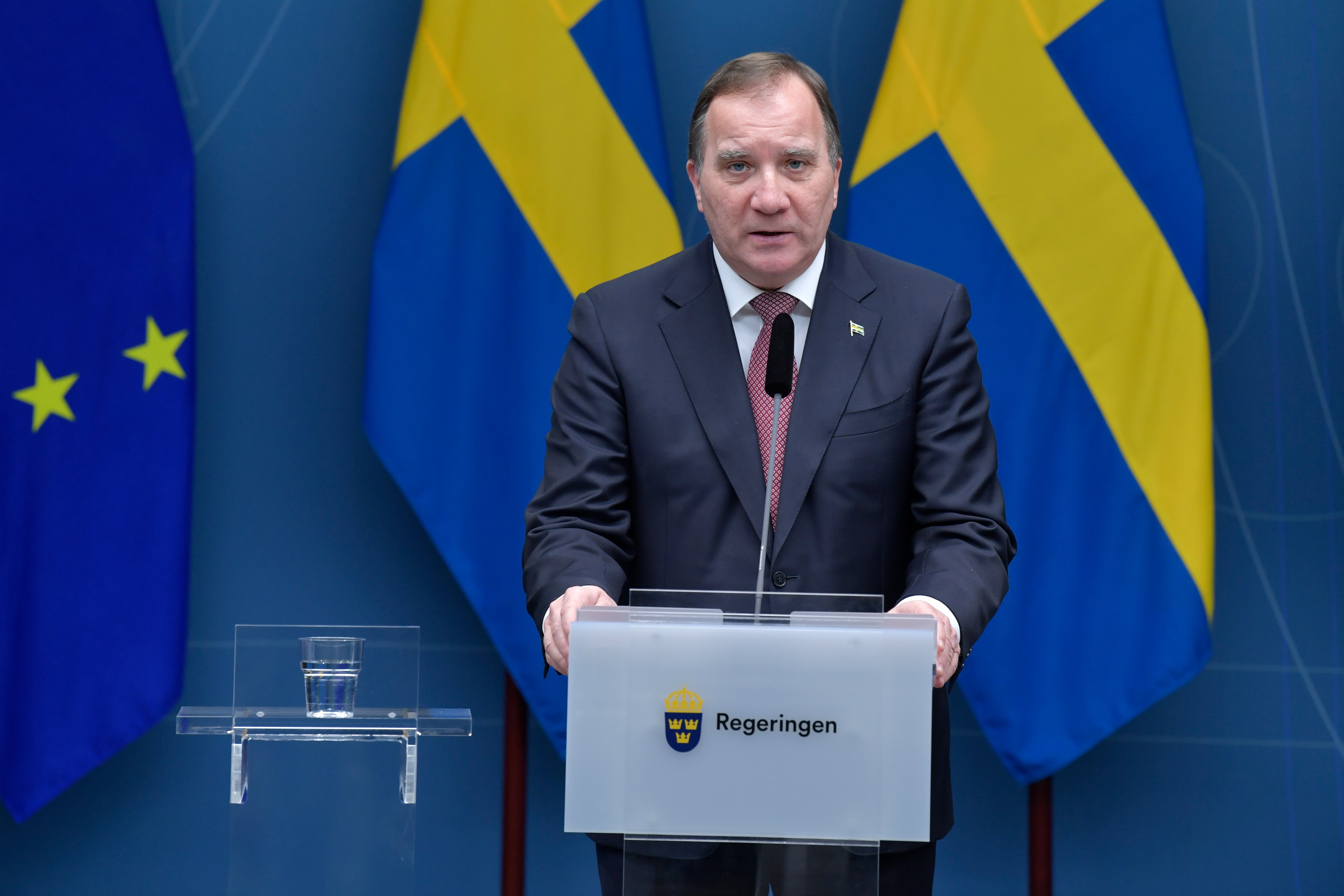Virus outlier Sweden adopts more restrictions as cases rise
The Swedish government is tightening nationwide coronavirus restrictions by requiring many people to work from home and reducing the number who can gather in restaurants, shops and gyms starting next week

Your support helps us to tell the story
From reproductive rights to climate change to Big Tech, The Independent is on the ground when the story is developing. Whether it's investigating the financials of Elon Musk's pro-Trump PAC or producing our latest documentary, 'The A Word', which shines a light on the American women fighting for reproductive rights, we know how important it is to parse out the facts from the messaging.
At such a critical moment in US history, we need reporters on the ground. Your donation allows us to keep sending journalists to speak to both sides of the story.
The Independent is trusted by Americans across the entire political spectrum. And unlike many other quality news outlets, we choose not to lock Americans out of our reporting and analysis with paywalls. We believe quality journalism should be available to everyone, paid for by those who can afford it.
Your support makes all the difference.Sweden is tightening nationwide coronavirus restrictions by requiring many people to work from home and reducing the number who can gather in restaurants, shops and gyms starting next week, but the government decided against ordering the country s first full lockdown to control a recent spike in virus cases the prime minister said Friday.
Sweden has stood out among European nations for its comparatively hands-off response to the pandemic. The Scandinavian country has not gone into lockdowns or closed businesses, relying instead on citizens’ sense of civic duty to control infections.
However, the country has seen a rapid increase in confirmed cases that is straining the health care system. Prime Minister Stefan Lofven said, “The situation continues to be very serious,” which is why the government is introducing new limits on public activities.
“We believe that a lockdown is a burden for the population,” Lofven said. “We are following our strategy.”
The new restrictions taking effect on Dec. 24 include making face masks mandatory on public transportation and pushing back a nationwide cutoff time for bars and restaurants to sell alcohol to 8 p.m. instead of 10 p.m..
Lofven said people with non-essential jobs will be required to work from home, and Education Minister Anna Ekstrom said schools should continue to plan for distance education.
“It is not possible to return to a normal everyday life. The pandemic is about life and death,” deputy Prime Minister Isabella Lovin said at a news conference with Lofven.
Sweden, which has a population of 10 million, has reported 367,120 confirmed virus cases and 7,993 deaths since the start of the pandemic, according to the latest figures.
Since recording the country's first COVID-19 cases, Swedish authorities have advised people to practice social distancing, but schools, bars and restaurants have remained open.
The government and Sweden’s chief epidemiologist, Anders Tegnell, repeatedly defended the country’s coronavirus strategy while reporting one of the world's highest per capita COVID-19 mortality rates. Tegnell said earlier this week that the death toll “is likely to continue to rise in the coming weeks.”
In discussing the new face mask requirement, the head of Sweden’s Public Health Agency, Johan Carlson, said Friday that authorities “have never been against” making masks mandatory.
“We do not believe that it will have a very decisive effect, but it can have a positive effect on public transport during certain times,” Carlson said.
He added that they “can be useful in certain environments where you cannot keep your distance.”